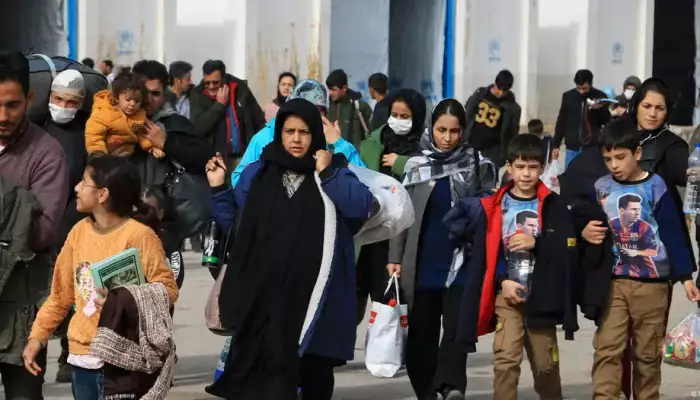
Tehran: Iranian police chief Ahmad-Reza Radan said in the next six months, some 2 million undocumented foreigners would be deported from Iran.
Speaking to the Iranian news agency Young Journalists Club in an interview on Tuesday, Radan also said security forces and the Interior Ministry were working out measures that would deport "a considerable number of illegal foreigners" over the long term.
When Iranian officials speak of "illegal foreigners," they usually mean migrants from Afghanistan. Iran and Afghanistan share a 900-kilometer (560-mile) long border, parts of which run through inaccessible, high mountain ranges. For over 40 years, Afghans have fled to Iran to escape civil war, poverty, and, now, the Taliban.
"Afghans are cultivated people, but our country cannot receive so many migrants," Iranian Interior Minister Eskandar Momeni said in an interview with Iran's state news agency on Monday.
He also highlighted the difficulties people in Afghanistan face and pointed out cultural similarities with Iranians.
"We plan to handle these matters in an orderly fashion and without much fuss," he said. "Our priority lies with irregular migrants."
In May, the Interior Ministry announced that some 1.3 million irregular migrants had been deported to Afghanistan in the past 12 months.
UNHCR: Over 4 million Afghans in Iran
The United Nations refugee agency UNHCR estimates that nearly 4.5 million Afghan nationals currently live in Iran. According to Iranian news agencies, however, the real number could be as high as 6 million or 8 million.
Many do not have a legal permit, avoiding registration out of fear of being deported. Many also intend to pass through Iran while trying to reach Europe.
Given their similar languages, Afghan immigrants can easily blend into Iranian society and keep themselves afloat with the support of other undocumented migrants. Many provide cheap labor in agriculture and at construction sites, where most Iranians are unwilling to work.
Meanwhile, many Iranian citizens believe undocumented Afghan workers have flooded the labor market and are a burden on the welfare system.
A heated debate over the high number of Afghan refugees has been ongoing for months. On a near-daily basis, the media reports on crimes, such as rapes and murders, allegedly perpetrated by refugees, or on the scarcity of basic foodstuffs like flour and eggs, or the infectious diseases for which irregular migrants allegedly require medical care.
Petitions calling for the deportation of Afghan refugees as well as countless hate posts circulate online.